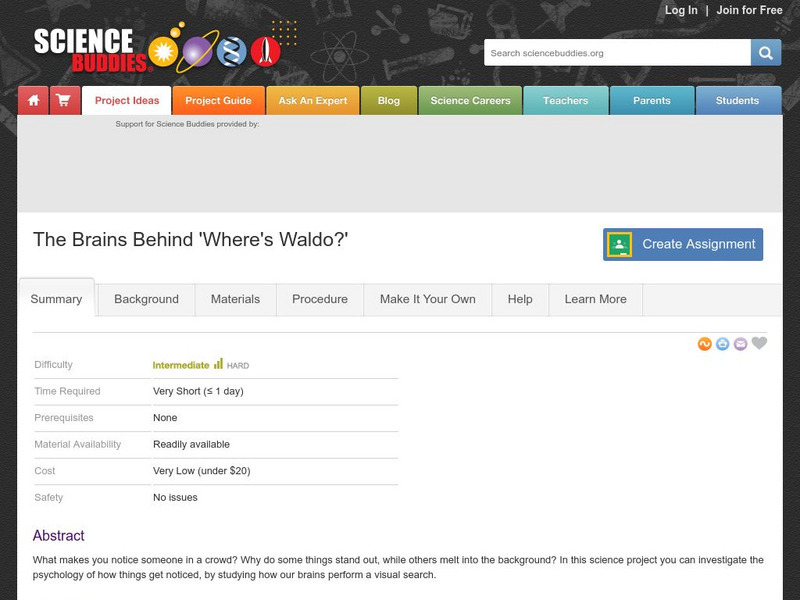NASA
Nasa: 21th Century Explorer: Why Do We Want to Study and Travel to Mars?
This article answers some of the most common questions about Mars: Why is it red? Is there water on Mars? What else have scientists discovered from spacecraft that have landed there? Also, visitors can follow links to learn more about...
Science Buddies
Science Buddies: Fractography: The Way Things Break
When something goes wrong, do you like to try to figure out why? Engineers do this all the time. They even have a fancy name for it: failure analysis. Understanding how different materials break is an important part of failure analysis....
Science Buddies
Science Buddies: The Brains Behind 'Where's Waldo?'
What makes you notice someone in a crowd? Why do some things stand out, while others melt into the background? In this experiment you can investigate the psychology of how things get noticed, by studying how our brains perform a visual...
Society for Science and the Public
Science News for Students: Bad for Breathing
A study provides new clues as to why some respiratory diseases are linked to air pollution.
Other
Rutgers Marine & Coastal Sciences: Cool Classroom
Students and teachers can explore the work of marine scientists and observe the ocean from their computers. Learn about Rutgers Coastal Ocean Observation Laboratory, discover why oceanography is important, and see what life is like in...
Science Struck
Science Struck: The Reasons Why Geography Is So Important
Explains reasons why the study of geography is beneficial.
Ducksters
Ducksters: Earth Science for Kids: Tsunamis
Investigate tsunamis including what causes them such as earthquakes, where they occur, why they are dangerous, and what happens during a tsunami event on this website.
Open Curriculum
Open Curriculum: Classification: Form and Function
Find out about taxonomy, and understand why scientists classify organisms. Study the concepts behind Linnaean taxonomy and binomial nomenclature.







